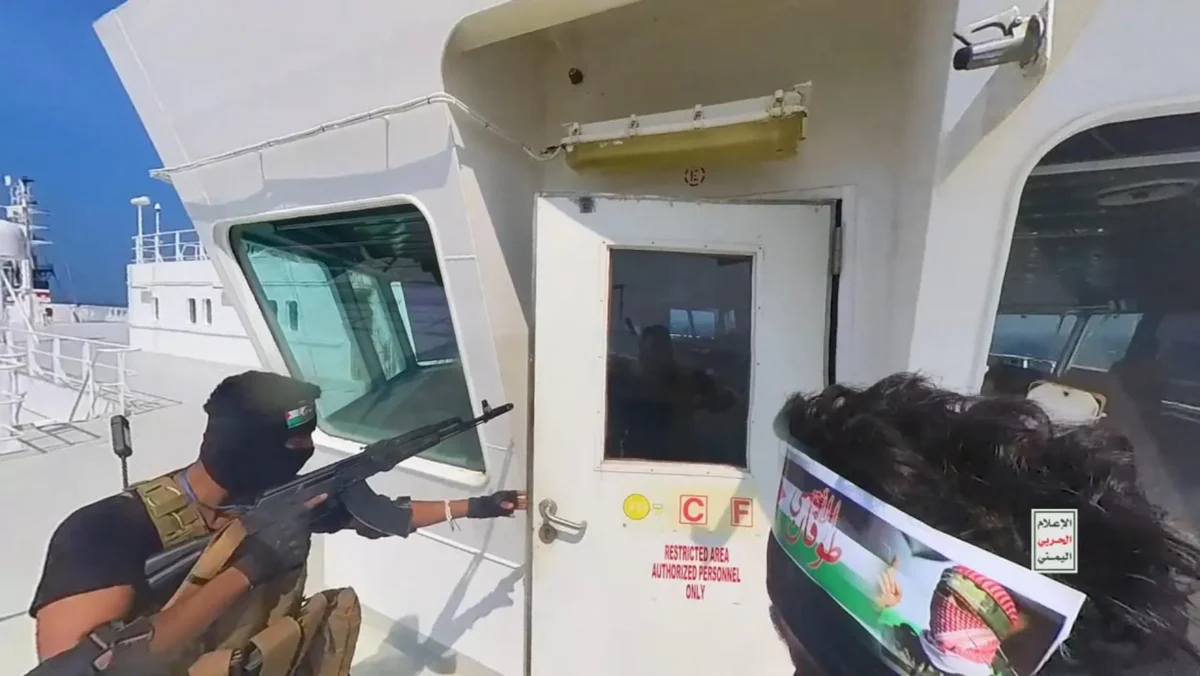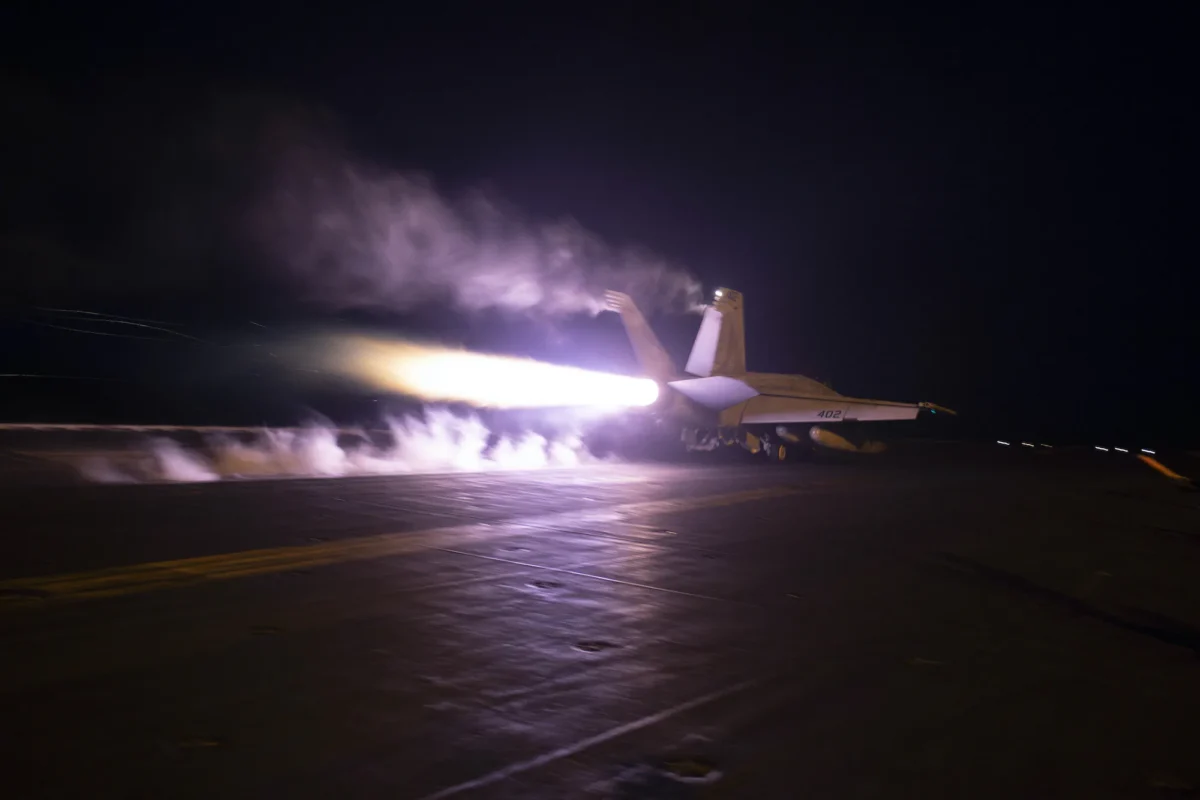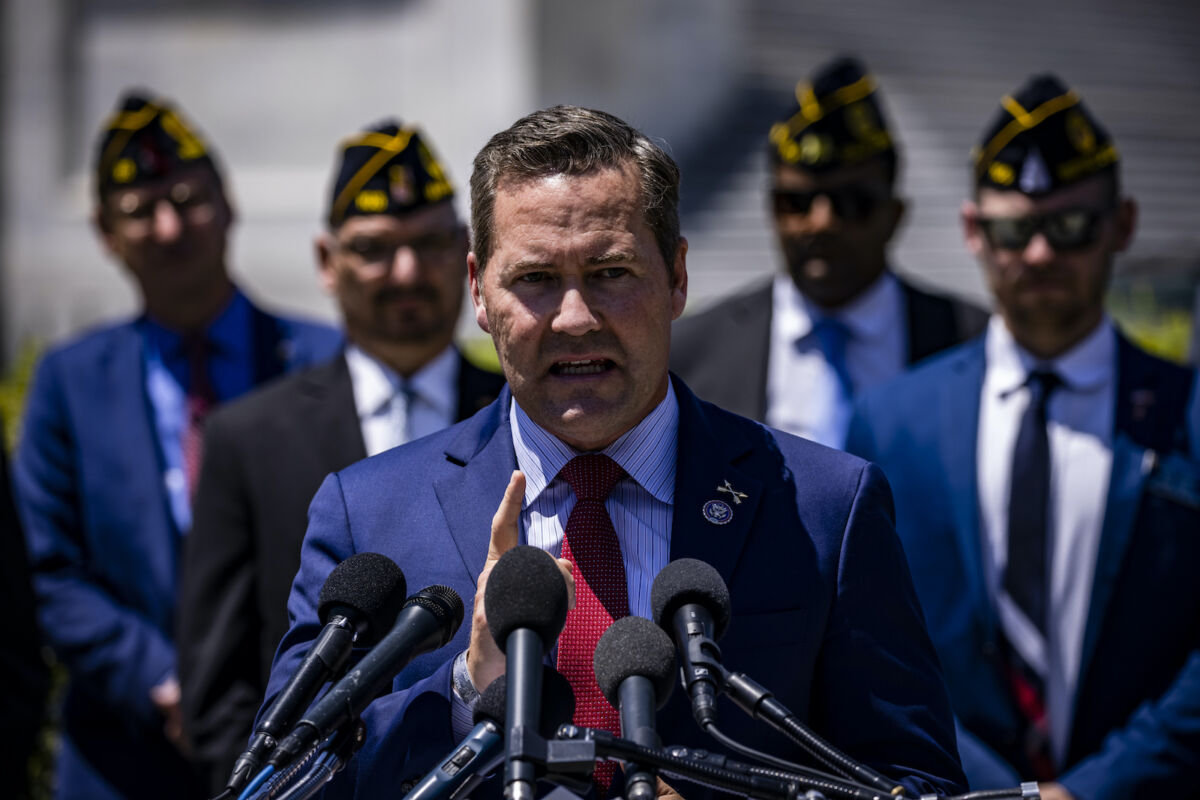Congressman Mike Waltz (R-Fla.) is asserting a link between the ongoing pattern of Houthi terrorist attacks in the Red Sea and the Iranian government and faulting President Joe Biden’s administration for not pressuring Iran more directly to end the high seas attacks.
Following their hijacking of a commercial ship on Nov. 19, Houthi terrorists in Yemen have launched explosive drones and missiles at other cargo vessels transiting the neighboring Red Sea.
The U.S. military and its allies and partners have escorted these civilian vessels and intercepted these drone and missile attacks, and have conducted air and missile strikes against Houthi-held territory in Yemen since Jan. 11.
“On the one hand, I am glad that the administration is finally taking some decisive action, rather than having our sailors sit out there as target practice for the Houthis and hitting back, but on the other hand, strategically, I have real questions here,” Mr. Waltz told NTD’s “Capitol Report” on Thursday.
“Number one, we seem to be dealing with the symptoms of the disease rather than going to its core issue and the core problem, which is Iran. And so we’re dealing with all of the tentacles of the octopus, to use another analogy, and not going to the head of the issue.”
The Houthis, also known as Ansar Allah, are a Zaydi Shiite terrorist movement that has fought with Yemen’s internationally recognized government since 2004.
While the Yemeni conflict has waned in recent months with moves toward a ceasefire in the country, the Houthis have turned their attention to the ongoing Israel–Hamas war and have insisted they will target merchant ships they believe are connected to the Israeli side of the conflict.

The U.S. government has long suspected the Iranian regime of supplying and funding the Houthis. Earlier this month, U.S. Navy SEALs boarded a small cargo vessel to seize what the U.S. Central Command (CENTCOM) assessed was a shipment of Iranian-supplied advanced conventional weapons (ACW) bound for Yemen.
The Iranian side has cheered the recent Houthi attacks but has repeatedly denied arming the group or directing its actions. The Houthis have also denied Iranian involvement in their Red Sea attacks, but Mr. Waltz and other U.S. observers are not convinced by these denials.
Call for Return of Trump’s Maximum Pressure Policies
Mr. Waltz, who serves on the House Foreign Affairs and Armed Services Committees, said the United States should resume the “maximum pressure” sanctions policy President Donald Trump’s administration had toward Iran.
President Biden has rescinded some Trump-era sanctions against Iran and unfrozen some of the Tehran government’s assets during his administration. But Mr. Waltz argued these actions create avenues for Iran to fund proxy factions throughout the Middle East, including various Iraqi militia groups that have clashed with the U.S. forces deployed in that country, as well as Hamas and Hezbollah that have clashed with Israeli forces.
“As long as Iran is flush with cash, it is going to continue to smuggle and send resources, weapons, money, and otherwise to all of its proxies,” the Florida Republican said.
Mr. Waltz said the Biden administration must reverse its course on Iran sanctions.
“Under President Trump, all of those groups were complaining that they were out of resources, out of cash, and were less and less effective. That’s because maximum pressure was working,” he said. “And now look at them. They are affecting global trade, oil, and gas. They’re tying down our Navy. They’re threatening our greatest ally, Israel, in the Middle East, and it’s all because of bad Iran policy.”

In the last month, the U.S. Treasury Department has announced multiple new sanctions designations targeting individuals and entities suspected of providing a financial nexus between Iran and terrorist groups like Hamas, Hezbollah, and the Houthis. This month, the Biden administration also reversed its own prior actions and relabeled the Houthis as a Specially Designated Global Terrorist (SDGT) entity.
China’s Role in the Red Sea
Financial Times reported this week that Secretary of State Antony Blinken and other members of the Biden administration had reached out to China, asking for help to convince Iran to dissuade the Houthis from carrying on further attacks in the Red Sea. When asked for his thoughts on that recent reporting, Mr. Waltz said China has no interest in calming the situation in the Red Sea shipping lanes.
“That statement from Secretary Blinken just shows how feckless, frankly, this administration’s diplomacy and foreign policy is,” Mr. Waltz said. “China has no interest or stake in pressuring Iran.”

Rather, the Florida congressman said China prefers to see the United States and its allies tied down dealing with attacks in the Red Sea and elsewhere throughout the Middle East.
“China’s perfectly happy to keep buying Iranian oil in violation of [United Nations] and U.S. sanctions. So we’re seeing this unholy alliance between Russia, Iran, and China only grow. And so to ask China as some type of good faith actor to step in, for the good of the world order, I just think is ridiculous,” he said.
NTD News reached out to the U.S. State Department for confirmation on the Financial Times’ reporting and for its response to Mr. Waltz’s comments but did not receive a reply by press time.
State Department spokesman Matthew Miller neither confirmed nor denied Financial Times’ reporting when asked about it on Wednesday but said any major global economy, including China, should be interested in ensuring the Red Sea remains “a place for responsible, safe, and legitimate international commerce to take place.”
Chinese Foreign Ministry spokesman Wang Wenbin also did not directly confirm or deny the Financial Times’ reporting when asked about it on Wednesday but said the Chinese side has been “in close communication with various parties and worked actively to alleviate the tension in the Red Sea.”
